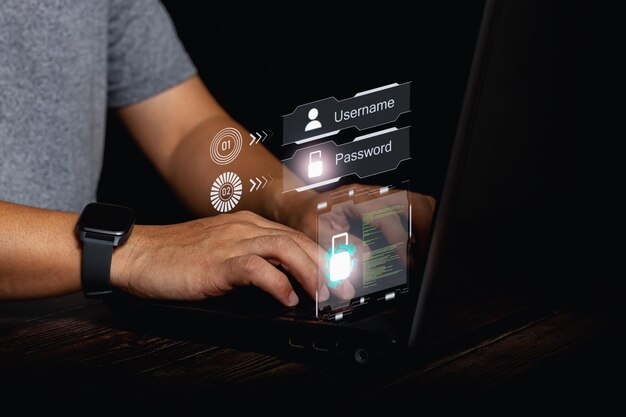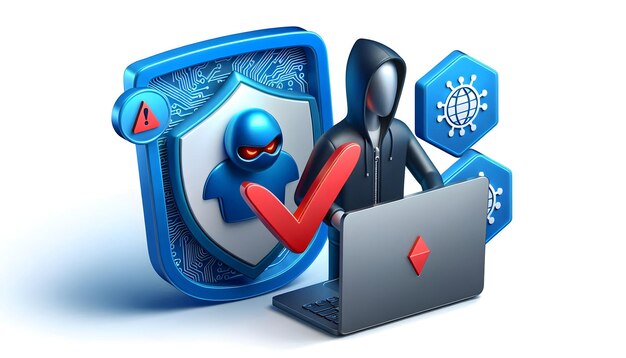Is Coinbase Wallet Really Safe? An In-Depth Analysis
Coinbase Wallet, a hot wallet offering by the popular cryptocurrency exchange platform Coinbase, has been a topic of debate among the crypto community regarding its safety. In this in-depth analysis, we aim to provide you with essential information about Coinbase Wallet’s security features and best practices to ensure your assets are protected.
Security Features
Private Keys: Coinbase Wallet gives its users the control and responsibility to manage their private keys, which is crucial for maintaining security. Users can store their keys on their mobile devices or a hardware wallet like Ledger, keeping them away from potential threats online.
Two-Factor Authentication (2FA)
2FA is an additional security layer that enhances the protection of your account. With 2FA, users need to provide two forms of identification – something they know (password) and something they have (authentication code).
Biometric Authentication
Biometric authentication, such as touch or face ID, ensures only the authorized user can access their account on their mobile device. This feature is especially convenient and secure when using the Coinbase Wallet app.
Secure User Interface
Coinbase Wallet‘s user interface (UI) is designed with security in mind. The company uses best practices like HTTPS encryption and multi-signature technology to ensure a secure browsing experience.
Best Practices
Enable 2FA: Users are encouraged to enable 2FA to add an extra layer of security to their accounts.
Backup Your Seed Phrase:
Seed phrases are essential for recovering your funds in case you lose access to your wallet. Make sure to store it securely and avoid sharing it with anyone.
Use a Hardware Wallet:
Hardware wallets provide an additional layer of security by storing your private keys offline.
Regularly Update Your Wallet:
Update your Coinbase Wallet regularly to ensure you have the latest security features and bug fixes.
In Conclusion
Coinbase Wallet, with its robust security features and best practices, is considered relatively safe for managing your crypto assets. However, it’s essential to remember that no wallet is entirely immune to risks and attacks. Always stay informed about the latest threats and follow security best practices.
Stay Safe and Secure
As always, prioritize your safety by staying informed about the latest threats and following security best practices. Happy crypto journeying!

Exploring the World of Cryptocurrencies and the Crucial Role of Secure Wallets: An In-depth Look at Coinbase Wallet
The Rising Popularity of Cryptocurrencies and Secure Wallets
Cryptocurrencies, with their decentralized and blockchain-based nature, offer a level of autonomy and freedom that traditional financial systems cannot match. However, the anonymity they provide also makes them susceptible to potential threats such as hacking, theft, and fraud. As a result, users must take extra precautions to ensure their digital assets are securely stored. This is where cryptocurrency wallets come into play. These digital vaults store the private keys that grant access to your cryptocurrencies, acting as a crucial protective layer against potential threats.
Introducing Coinbase Wallet: A Leading Option for Many Users
Coinbase Wallet, offered by the well-known and trusted cryptocurrency exchange Coinbase, is a versatile and user-friendly choice for many individuals seeking a reliable wallet solution. With its support for multiple cryptocurrencies and seamless integration with the Coinbase exchange, it offers convenience and ease of use that attracts numerous users. However, as with any wallet, it’s essential to be informed about the security and safety concerns surrounding Coinbase Wallet. In the following sections, we will delve deeper into these matters to help you make an informed decision about whether it’s the right choice for you.
Understanding the Security Features of Coinbase Wallet
Coinbase Wallet offers several security features that aim to protect users’ assets. These include 12-word recovery phrases, multi-factor authentication (MFA), and biometric login support for iOS devices. However, it’s vital to be aware that no wallet is completely impenetrable, and users must take additional precautions to further secure their funds. In the next section, we will explore potential risks associated with Coinbase Wallet and discuss ways to mitigate them.
Addressing Safety Concerns Surrounding Coinbase Wallet
While Coinbase Wallet offers several security features, there are still some concerns and risks to be aware of. These include the potential for phishing attacks, loss or theft of recovery phrases, and vulnerabilities related to its browser extension. In the following sections, we will discuss these risks in detail and provide suggestions on how to minimize them. By understanding both the strengths and weaknesses of Coinbase Wallet, you’ll be better equipped to make informed decisions about whether it’s the right choice for securely storing your valuable digital assets.

Understanding Coinbase Wallet
Coinbase Wallet, developed by the leading cryptocurrency exchange platform Coinbase, is a self-custodied wallet designed for managing digital assets. It allows users to send, receive, and store various cryptocurrencies as well as non-fungible tokens (NFTs). This wallet is accessible through a mobile application for both iOS and Android devices and as a web extension for desktop browsers.
Key Features
- Self-custodied: Users are in complete control of their private keys, providing full ownership and security over their digital assets.
- Multi-asset support: Coinbase Wallet supports a wide range of cryptocurrencies and NFTs, including Bitcoin, Ethereum, Litecoin, Dogecoin, and many more.
- Secure recovery phrase: In case of loss or theft, users can recover their wallet using a 12-word recovery phrase.
- Integration with Coinbase Exchange: Users can easily transfer assets between their wallet and their Coinbase account.
Differences from Other Coinbase Offerings
Coinbase Wallet differs from other offerings by Coinbase, such as the Coinbase Exchange and Coinbase Pro:
- Coinbase Exchange: Is a traditional centralized cryptocurrency exchange where users trade assets against each other.
- Coinbase Pro: Is a more advanced trading platform that offers more features and lower fees for experienced traders.
Reasons to Choose Coinbase Wallet
Users might choose Coinbase Wallet for several reasons:
- Security: By controlling their private keys, users can enjoy enhanced security compared to holding assets on a centralized exchange.
- User Experience: Coinbase Wallet offers an intuitive interface, making it easy for beginners to use and manage their digital assets.
- Flexibility: Users can seamlessly transfer assets between the wallet and their Coinbase account for trading or other purposes.

I Security Measures Implemented by Coinbase Wallet
When it comes to safeguarding digital assets, Coinbase Wallet prioritizes robust security measures. Here, we’ll delve into the specifics of the security mechanisms employed by Coinbase Wallet in managing your cryptocurrency keys and encrypting user data.
Private keys and encryption
Private keys are essential components of a cryptocurrency wallet, serving as the digital equivalent to your physical bank account number and PIN. They provide access to your cryptocurrencies stored on the blockchain network. Coinbase Wallet ensures that users have complete control over their private keys, which is crucial for maintaining the security and privacy of their digital assets.
Explanation of private keys in the context of cryptocurrency wallets
In simpler terms, a private key is a complex mathematically derived code that unlocks access to your cryptocurrencies. Since private keys are essential for managing transactions, it’s crucial that they remain confidential and not accessible to anyone else.
How Coinbase Wallet uses Hierarchical Deterministic (HD) wallet architecture for secure private key management
Coinbase Wallet employs Hierarchical Deterministic (HD) wallet architecture, which is an advanced approach to managing private keys. HD wallets generate a series of interconnected private keys from a single seed phrase. This system ensures that users can easily recover their entire wallet if they lose access to one key, making it more convenient and secure than traditional wallets which require the management of multiple keys. Additionally, HD wallets enable users to derive new addresses for each transaction, enhancing privacy by minimizing the chances of linking transactions to a single user.
Discuss the encryption methods used by Coinbase Wallet to protect users’ information and data
Coinbase Wallet utilizes encryption methods at various levels to protect users’ sensitive information and data. Data is encrypted using advanced encryption algorithms both locally on the user’s device and in the cloud, ensuring that even if someone gains unauthorized access to your data, they won’t be able to read it without the encryption key. Furthermore, two-factor authentication (2FA) adds an extra layer of security by requiring users to enter a unique code sent via SMS, email or authenticator app before accessing their wallet.

Two-Factor Authentication (2FA) and Multi-Signature Technology: Enhancing Security for User Accounts and Transactions
Two-Factor Authentication (2FA) and Multi-Signature Technology are two essential security features that have become increasingly popular, especially in the world of cryptocurrencies and digital wallets. Two-Factor Authentication, also known as 2FA or Two-Step Verification, is a security mechanism that requires users to provide two different authentication factors to access their accounts. The first factor is usually a username and password, while the second factor can be a verification code sent via SMS, an email, or through an authentication app. By implementing 2FA, users add an extra layer of protection against unauthorized access to their accounts.
Role of Two-Factor Authentication in Enhancing Security
The significance of 2FA lies in its ability to mitigate the risk of password theft or unauthorized access. Even if a hacker manages to obtain your username and password, they would still require the second verification code to gain access to your account. This additional step ensures that only you or someone who has access to both your username/password and the second factor can log into your account.
Multi-Signature Technology: Providing an Additional Layer of Security for Transactions
Multi-Signature Technology, also known as multisig or n-of-n signing, is a method of requiring more than one signature to validate and authorize transactions. This technology is commonly used in cryptocurrency wallets, such as link. In the context of multi-signature technology, a transaction can be signed off by multiple parties, meaning that no single party can control or access the wallet’s funds without the cooperation of others.
How Coinbase Wallet Uses Multi-Signature Technology
Coinbase Wallet, for instance, uses multi-signature technology to ensure that users’ funds are safe and secure. By default, each Coinbase Wallet transaction requires a minimum of two signatures: one from the user (the sender), and another from the backup key. This means that no single entity, including Coinbase or the user alone, can initiate a transaction without the consent of both parties. Multi-signature technology adds an extra layer of security by decentralizing control over users’ funds and transactions.
Conclusion: Enhancing Security through Two-Factor Authentication and Multi-Signature Technology
In conclusion, implementing both Two-Factor Authentication (2FA) and Multi-Signature Technology in your digital wallet or account provides a robust security framework that protects against unauthorized access, phishing attacks, and potential fraud. These features add an extra layer of verification and decentralization, ensuring that users’ funds are safe and secure.

Biometric Authentication and Other Security Features in Coinbase Wallet
Coinbase Wallet, a popular cryptocurrency wallet solution, offers its users an exceptional blend of convenience and security. One of the most noteworthy security features is biometric authentication, which allows wallet access using unique physical attributes like fingerprints or facial recognition. This feature not only eliminates the need to remember complex passwords but also ensures that only the rightful owner gains access.
The Convenience and Security of Biometric Authentication
Biometric authentication is an innovative technology that has revolutionized the way we secure our digital assets. With Coinbase Wallet, users can enable this feature to easily unlock their wallets, making each transaction swift and hassle-free. This technology is both convenient and secure since biometric data is unique to every individual, reducing the likelihood of unauthorized access.
Additional Security Measures
Email verification and account locking
Coinbase Wallet offers more than just biometric authentication to ensure the safety of its users’ funds. A robust email verification process is in place, requiring new users to verify their emails before accessing their wallets. This step adds an extra layer of security and helps prevent unauthorized account creation.
Account Locking
Another essential feature is account locking, which allows users to temporarily secure their wallets. If a user suspects that their account may have been compromised, they can instantly lock it and regain access only after entering the required verification code sent to their email address.
Conclusion
Coinbase Wallet’s implementation of biometric authentication, email verification, and account locking ensures that users can enjoy a convenient yet secure digital wallet experience. These features offer peace of mind to its ever-growing user base, knowing their assets are protected from unauthorized access.

Potential Vulnerabilities and Risks
Phishing Attacks and Social Engineering Tacts
Phishing attacks and social engineering tactics pose significant risks to users of cryptocurrency wallets, including those using Coinbase Wallet. Phishing, a type of cyber attack, is designed to trick individuals into revealing sensitive information such as login credentials or private keys through fraudulent emails, websites, or messages. Social engineering, on the other hand, manipulates people into divulging confidential information through psychological manipulation and deception.
Description of the potential risks associated with phishing attacks on cryptocurrency wallets
The consequences of a successful phishing or social engineering attack against a cryptocurrency wallet can be devastating. Hackers may gain access to your account, steal your funds, or even take control of your wallet. Phishing emails often appear harmless at first, containing links or attachments that direct users to fake login pages, where they are asked to enter their credentials. Social engineering tactics might involve a hacker posing as a trusted contact or support representative to trick you into sharing your private keys, seed phrases, or other sensitive information.
Discussion on how Coinbase Wallet users can protect themselves from these threats (best practices, educational resources)
To safeguard your Coinbase Wallet from phishing attacks and social engineering tactics, it is essential to practice good security habits. Some best practices include:
- Never share your private keys or seed phrases with anyone, even if they claim to be representatives from Coinbase or other trusted organizations.
- Always double-check the URLs of websites you visit and ensure they are genuine before entering your login credentials or making transactions.
- Use strong, unique passwords for each account and enable two-factor authentication (2FA) whenever possible.
- Be cautious of unexpected emails, messages, or phone calls from unverified sources, and avoid clicking on links or downloading attachments from suspicious emails.
- Keep your software up to date, including your web browser and antivirus programs, as outdated versions may contain vulnerabilities that hackers can exploit.
Coinbase also provides various educational resources to help users learn about the risks associated with phishing attacks and social engineering tactics, as well as best practices for securing their accounts. By staying informed and following these guidelines, Coinbase Wallet users can significantly reduce their risk of falling victim to these types of attacks.
Additional resources:

User Error and Human Vulnerabilities
User error and human vulnerabilities are two significant factors that can lead to
security issues
in the world of cryptocurrencies. Let’s delve into some common mistakes made by users that might put their assets at risk:
Losing Access to Wallets:
Forgetting the private key, losing the physical device or misplacing the recovery phrase can lead to a complete loss of access to your cryptocurrency wallet. This mistake is irreversible, making it crucial to keep your
recovery phrase
safe and accessible.
Forgetting Passwords:
Neglecting your passwords, especially for exchange platforms or email addresses associated with your wallets, can create a security risk. If an attacker gains access to any of these accounts, they can potentially drain your assets.
Social Engineering Attacks:
Users may fall prey to phishing emails, fake websites, or fraudulent mobile apps. These attacks can trick users into revealing sensitive information, like passwords or private keys. Always ensure that you’re accessing legitimate sources and never share your secrets with anyone.
Mitigating Risks and Safeguarding Users’ Assets:
To minimize the risks of these user errors and vulnerabilities, follow these precautions:
- Store your recovery phrase securely: Keep it in a safe place, such as a locked safe or a secure digital vault.
- Use strong passwords: Make sure they’re unique and complex, using a combination of letters, numbers, and symbols.
- Enable two-factor authentication: This adds an extra layer of security to your accounts.
- Be cautious with links and emails: Verify the sender’s authenticity before clicking on any links or providing sensitive information.
- Regularly backup your wallets: This ensures you’ll always have access to your assets, even if something happens to your device.
By implementing these best practices and staying informed about the latest security threats, you’ll be better equipped to protect your cryptocurrency investments.

Regulatory Challenges and Compliance Concerns
Cryptocurrency wallets, including Coinbase Wallet, operate in a complex and evolving regulatory landscape.
Regulatory Landscape Analysis
The regulatory landscape for cryptocurrency wallets is a dynamic and intricate web.
Jurisdictional Complexities
One of the primary challenges is determining jurisdictional complexities, as regulations can vary significantly from one country to another. Some countries have embraced cryptocurrencies and offer supportive frameworks, while others have taken a more cautious approach or even banned their use entirely.
Existing Financial Regulations
Another major challenge is understanding how existing financial regulations apply to cryptocurrency wallets. For example, wallets may be subject to anti-money laundering (AML) and know your customer (KYC) regulations. Additionally, they may need to comply with tax laws or consumer protection statutes.
Emerging Regulations and Guidelines
New regulations and guidelines are constantly emerging, further complicating the landscape. For instance, some regulatory bodies have begun exploring the use of stablecoins within their existing frameworks or even developing new regulations specifically for digital assets.
Compliance Approaches by Coinbase Wallet
Despite these challenges, Coinbase Wallet actively navigates the regulatory landscape to maintain compliance.
Collaboration with Regulators
One approach is through collaboration with regulators. Coinbase Wallet actively engages with regulatory bodies to understand their expectations and adapt its practices accordingly.
Implementation of AML/KYC Measures
Another strategy is the implementation of robust AML and KYC measures. Coinbase Wallet requires users to verify their identities before using its services. It also monitors transactions for suspicious activity and reports any potential violations to regulatory bodies.
Adherence to Tax Laws
Furthermore, Coinbase Wallet encourages users to comply with tax laws by providing tools and resources for tracking capital gains and losses. It also reports user activity to the Internal Revenue Service (IRS) in accordance with applicable tax laws.
Continuous Compliance Efforts
Lastly, Coinbase Wallet maintains a dedicated compliance team to ensure ongoing adherence to regulatory requirements. This team stays informed of the latest regulations and guidelines, allowing Coinbase Wallet to adapt quickly and effectively.

User Experiences and Community Feedback
In evaluating the performance and user satisfaction of Coinbase Wallet, it is essential to collect anecdotal evidence from users who have firsthand experience with the platform. This can be done through informal conversations, surveys, or interviews. By gathering this information, we can gain insights into users’ perceptions of the wallet’s security features and overall user experience.
Security Features
Users’ feedback on the security features of Coinbase Wallet is a critical aspect of assessing its performance. The wallet employs industry-standard encryption and multi-factor authentication to secure users’ assets. By interviewing users, we can understand whether they feel secure using the wallet and if they have experienced any security issues. For instance, one user might share a story about how they were able to recover their lost funds through the wallet’s robust recovery process.
User Experience
A positive user experience is crucial for any digital wallet, including Coinbase Wallet. Analyzing users’ feedback on various online platforms such as forums, social media, and other online communities can help us identify areas where the wallet excels or falls short. For example, a user might share their frustration with the wallet’s interface design, which could indicate an opportunity for improvement. Conversely, another user might praise the simplicity and ease of use of the wallet’s features.
Analysis of User Feedback
To effectively analyze user feedback, it is essential to employ a systematic approach. This might involve using text analytics tools to identify sentiment and themes in users’ comments or employing human analysts to code and categorize feedback based on specific criteria. For example, we might analyze user feedback related to the wallet’s ease of use, fees, customer support, and security features separately to gain a more nuanced understanding of each aspect.
Importance of Continuous Feedback Collection
Collecting user feedback is an ongoing process that requires continuous effort and attention from the development team. By regularly gathering and analyzing user feedback, Coinbase can identify areas for improvement and make data-driven decisions to enhance its wallet’s performance and user satisfaction. Additionally, maintaining open lines of communication with the community through various channels such as social media or dedicated forums can help build trust and foster a positive relationship between users and the company.

Comparing Coinbase Wallet with Other Wallets: A Deep Dive into Community Sentiment and Perceived Security
When it comes to choosing a cryptocurrency wallet, there are numerous options available in the market. Three popular choices are Coinbase Wallet, MetaMask, and MyEtherWallet. In this paragraph, we will boldly focus on how Coinbase Wallet compares with its competitors in terms of community sentiment and perceived security.
User Feedback: A Comparative Analysis
To begin with, let’s examine the user feedback and overall community trust that each wallet enjoys. According to various sources, such as Reddit, Twitter, and Trustpilot, Coinbase Wallet has a mixed user feedback. Some users praise its simplicity, ease of use, and robust security features. On the other hand, some users have expressed concerns over customer service issues and high gas fees for transactions.
Comparing Security Features: Coinbase Wallet vs. MetaMask vs. MyEtherWallet
Bold Security is a significant concern for all cryptocurrency users, and it’s essential to understand how each wallet addresses this issue. Coinbase Wallet offers multi-coin support, easy recovery of lost funds using a 12-word seed phrase, biometric authentication, and integration with Coinbase’s insurance fund.
MetaMask: A Popular Choice
Bold MetaMask, on the other hand, is a browser extension wallet that supports Ethereum and Ethereum-based tokens. It offers robust security features such as a strong encryption standard, a 12-word seed phrase for recovery, and an easy-to-use interface.
MyEtherWallet: An Ethereum Wallet with a Large Community
Bold MyEtherWallet (MEW) is another popular Ethereum wallet known for its simplicity and ease of use. MEW offers an open-source interface, a 12-word mnemonic phrase for recovery, and supports both Ethereum and ERC20 tokens.
Factors Contributing to the Perception of Security
Bold While comparing these wallets, it’s crucial to understand the factors contributing to their perceived security. Factors such as user experience, community support, and security features play a significant role in shaping the community sentiment towards each wallet.
User Experience: A Key Factor in Wallet Adoption
Bold User experience is a critical factor in wallet adoption. A wallet that is easy to use and navigate will be more popular among users than one that requires extensive technical knowledge.
Community Support: Building Trust through Engagement
Bold Community support is another essential factor in shaping the perception of security. Wallets with an active and engaged community tend to be perceived as more secure due to the collective knowledge and experience of its users.
Security Features: A Necessity in Crypto Wallets
Bold Lastly, security features are a necessity in any cryptocurrency wallet. Features such as multi-factor authentication, encrypted private keys, and seamless recovery options can significantly influence the community sentiment towards a particular wallet.

VI. Conclusion
Coinbase Wallet, a popular non-custodial cryptocurrency wallet, offers robust security features designed to protect users’ digital assets. Biometric authentication, two-factor authentication (2FA), and encryption are some of the essential security measures that Coinbase Wallet employs to safeguard users’ funds. The wallet also supports SegWit and multi-sig technology, enhancing transaction security and efficiency.
Potential Vulnerabilities and Risks
While Coinbase Wallet takes significant steps to ensure user security, it’s essential to acknowledge that no wallet is entirely risk-free. Potential vulnerabilities include:
- Phishing scams: Users should be wary of unsolicited emails, texts, or messages on social media platforms. Always double-check the sender’s address and never share your seed phrase or private keys.
- Malware and viruses: Ensure that your device is free from malicious software before using your wallet. Regularly update your operating system, antivirus software, and other security tools.
- Social engineering attacks: Be cautious when sharing personal information or interacting with individuals who claim to be from Coinbase or any other reputable organization.
User Experiences and Community Feedback
Many users report positive experiences using Coinbase Wallet, praising its ease of use, sleek interface, and reliable performance. However, there are some concerns regarding the wallet’s customer support response times during peak usage periods.
Community Perception
The overall community perception of Coinbase Wallet’s security is generally favorable, with most users acknowledging the importance of maintaining their personal security. However, ongoing debates about the wallet’s decentralization and custodial aspects persist.
Final Thoughts
In conclusion, Coinbase Wallet offers a robust set of security features and is considered relatively safe for users. However, it’s essential to be vigilant against potential threats, such as phishing scams, malware, and social engineering attacks. Users should also understand the limitations of non-custodial wallets and accept that they are ultimately responsible for securing their assets.
Recommendations
For those considering using Coinbase Wallet, take the following precautions:
- Enable all available security features, such as biometric authentication and 2FA.
- Regularly update your wallet and the operating system on your device.
- Backup your seed phrase in a secure location and never share it with anyone.
- Use reputable sources for purchasing cryptocurrency or obtaining wallet downloads.
Additionally, explore alternative wallet options if you have concerns about Coinbase Wallet’s decentralization or custodial aspects. Always do your research before making a decision and stay informed about the latest security best practices in the crypto space.







